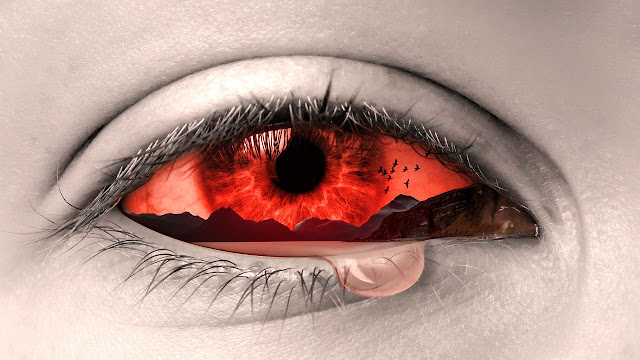Although many people mistakenly believe that crying is a sign of weakness, crying has many mental health benefits. Get to know the main benefits...
Crying is a natural response to many of our emotions, such as sadness, pain, frustration, anger, or joy. And, oddly enough, humans are the only living things that weep with emotional tears.
Crying is not uncommon and both sexes do. Research shows that women cry an average of 5.3 times per month and men cry an average of 1.3 times per month.
But, why do we cry?
When we are babies and cannot speak, crying is our primary form of communication. It is an indicator that something is wrong, expressing that we are hungry, in pain, or in need of some love. Over time, brain abilities become more complex and we begin to cry with sadness and even joy.
Then, as we get older, the crying evolves. To better understand them, it is important to know that our body produces three types of tears:
- Reflex tears: they are caused by a foreign body or by irritating factors for the eyes such as smoke, wind, or when, for example, we cut an onion. These tears have the function of protecting our eyes.
- Basal Tears: This is a protein-rich antibacterial liquid that keeps the eyes lubricated and dust-free.
- Emotional or psychic tears: these are produced by acute pain, joy, anger, sadness, or other emotions. They may have a more complex purpose, as this type of tear is a form of non-verbal communication. They can be used to generate empathy, gain emotional support, or even tell the other person that they have gone too far, for example, in an argument.
This type of tears is what arouses the most interest of researchers and what brings the most benefits to our health.
The 6 Great Psychological Benefits of Crying
Many people still believe that crying is a sign of weakness and that's why they try to avoid crying, but science suggests that doing this means losing a number of benefits. The main psychological benefits of crying are:
1. Relax
A study published by the National Institutes of Health found that crying has a direct effect on improving people's moods. Crying activates the parasympathetic nervous system (PNS), the main function of which is to bring about or maintain a relaxed state in the body. It acts on the body's level of stress by reducing it.
2. Crying helps us receive emotional support
When we see someone crying, our first reaction is to try to comfort them. The tears of the other remind us of our own vulnerabilities and thus an emotional identification is established. Second, crying has the ability to generate empathy in others. Also, the one who cries often wants to be comforted. It's a way to ask for help and receive support during difficult times in life.
3. Crying relieves pain and improves mood
With emotional tears, the body releases two powerful hormones responsible for our well-being: endorphin and oxytocin. These substances relieve discomfort and create a pleasant feeling of tranquility and calm. For this reason, after crying, we often smile or feel tremendous relaxation.
4. Crying releases toxins and reduces stress
Sad times or when we are very nervous increase levels of cortisol in the body, known as the stress hormone. In large doses, this hormone damages our defenses, leaving the body more prone to contracting diseases.
However, studies have shown that tears carry some of this hormone and also some toxins accumulated in the body during the stress period. By lowering the level of cortisol, we enter a state of calm that even allows us to sleep better.
5. Crying allows you to express your deepest emotions
Sometimes we are dominated by strong emotions, happy or sad, and we cannot express them with words. People often refer to crying as a liberating act and a way to say the unspeakable.
In addition, crying can promote self-knowledge because when we cry, we realize our vulnerabilities and weak points. We come to understand our own feelings and ways of acting.
6. Crying allows you to see problems from a different angle.
Due to the powerful calming effect, crying allows us to reduce the level of anxiety and the intensity of harmful emotions that we may feel. This makes us stronger and able to find adequate solutions to our problems.
Little by little, the person relaxes and calms down, the emotional charge is reduced and the lucidity to work in a more rational way increases. The affected person comes to terms with their intense emotions becoming smaller and more manageable. Raquel Molero, psychologist.
Why should we avoid suppressing our tears?
Although crying is beneficial for our physical and mental health, there is still the belief that crying is a sign of enormous weakness, mainly in men. In many cultures, a man who expresses his emotions by crying risks appearing too insecure or sensitive, and that is why from childhood he is taught not to cry.
However, according to psychologists, holding back crying has many negative consequences. A person who does not allow themselves to cry when they need to tends to manifest this emotion in a more uncontrollable way, being able to be more aggressive, anxious, and angry.
As you can see, crying is an act of courage because it brings us to face what we feel and what we fear. And being sensitive doesn't mean being weak. It means to be human.









0 Comments